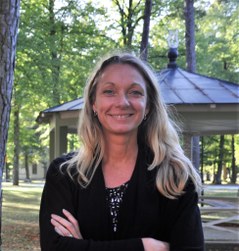Gender equality money to draw people to professions with labour shortages
Region Gotland has decided to set aside extra money for this year’s wage review to fill the pay gap and to help professions facing labour shortages. The hope is that the right money can get existing workers to stay and tempt new ones to come and work on the island.
Region Gotland has put aside 22 million kronor (€2.15m) for 2018 aimed at professions struggling with recruitment. The money will also be spent on bridging pay gaps. What is unique is that the region links the gender equality drive to professions with labour shortages in schools and the health and care sector – where you find the major female-dominated professions. These have fallen behind in terms of salary levels in later years, and the pay gap has had an effect on both recruitment and people’s willingness to stay in their jobs.
 “If you keep wages down for large groups over many years, things go wrong. Even if the job is exciting, there is a risk that people tire and quit if wage gaps become too wide compared to the rest of the labour market. A large pay gap makes it harder to recruit and keep hold of people within our professions, which are also largely female-dominated,” says Lotta Israelsson, HR strategist for Region Gotland.
“If you keep wages down for large groups over many years, things go wrong. Even if the job is exciting, there is a risk that people tire and quit if wage gaps become too wide compared to the rest of the labour market. A large pay gap makes it harder to recruit and keep hold of people within our professions, which are also largely female-dominated,” says Lotta Israelsson, HR strategist for Region Gotland.
Annual wage reviews
It became clear during the annual wage review, which all companies must carry out according to the Swedish Equal Opportunities Act, that some female-dominated professions were lagging behind on pay. Employers use the annual wage review to look at pay gaps between men and women in the same profession, but they also compare female-dominated professions with similar male-dominated ones.
There are several explanations to the unfair wage differences. One problem is the fact that female-dominated professions employ far more people than many of the male-dominated professions they are compared to. As a result, it takes longer to catch up on wage increases. Another explanation is public sector cuts.
“All administrations work with competence maintenance all year round. This can affect gender equality when it comes to recruiting people to professions suffering from labour shortages. Imagine you have 30 engineers and 300 nurses, and there is a labour shortage in both professions. One is female-dominated and the other is male-dominated, plus you are dealing with different salary levels. You end up with an uneven distribution. It does look like more money is put into recruiting engineers than nurses,” says Lotta Israelsson.
Extra money without competition
Like many other municipalities, Gotland is struggling to recruit enough people to the health and care sectors and to education. There is also a need for more social workers and teachers. By this summer, for instance, 500 new people are needed in Gotland’s care sector.
Being an island in the middle of the Baltic Sea has its advantages and disadvantages when it comes to recruitment. The island with its medieval city of Visby is a popular holiday destination and has seen a population growth in recent years. Nearly 59,000 people live in Gotland today. At the same time, the mainland is far away, and housing is often expensive for those who want to move to the island.
Region Gotland employs 6,500 people and is by far the largest employer on the island. It deals with everything which normally is taken care of by the municipality, the county council and the county administrative board. That means equal pay measures can be targeted at professions which suffer from the greatest labour shortages, avoiding a competition between the health care administrations and municipal care, as is the case in many other parts of the country.
“We are lucky, we can coordinate and create a universal wage structure rather than outbid each other internally,” says Lotta Israelsson.
Wage formation becomes a way of fixing unfair wage gaps, and the extra 22 million kronor also fall outside of the ordinary salary budget. It has been decided how to divide the money after HR heads from different authorities have assessed recruitment needs and where women’s salaries are lagging behind. This year teachers and staff in the health and care sector are given special priority.
“But we must not stop there. Other large female-dominated groups also lack staff, for instance nurses and social workers,” says Lotta Israelsson.
Wages not the only draw
The salary review and mapping of labour shortages shows another 30 million kroner would be needed to eradicate pay gaps and fix labour shortages this year. But the extra money is only the beginning of a longer term project, says Lotta Israelsson. Attracting the right competencies and getting people to stay in their jobs is a long term effort which must be carried out on many levels. Equal pay is one way. Working with leadership and organisations is another.
“We have to ask ourselves; what will tomorrow’s workplaces look like? What will future employers be like? Now personnel issues are in focus. Organisations that understand leadership and organisation will have greater success,” says Lotta Israelsson.
- A holiday paradise, mostly in summer
-
Gotland passed one million overnight stays in 2016, but last year the number of tourists visiting the island was somewhat lower. Just 59,000 people live there permanently. Several professions struggle to attract labour. Here, an elderly couple look out over the Baltic Sea.
 Follow us on Facebook
Follow us on Facebook
